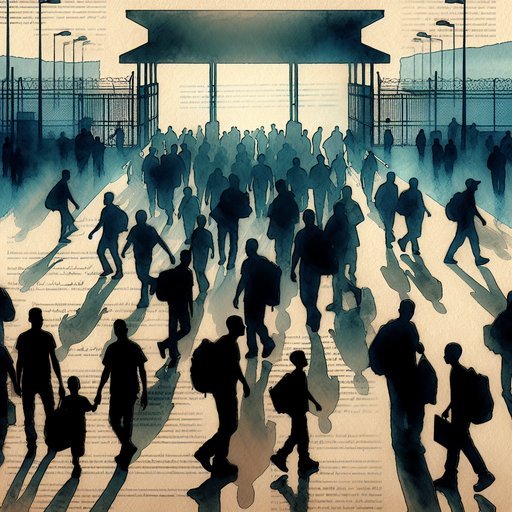
Recent events in the United States and Germany have brought migration and border policy back to the forefront of international discussion. Both nations are grappling with significant legal and political challenges related to their approaches to migration control. In the United States, a polarizing political debate has intensified following a deadly attack linked to immigration policy. Simultaneously, Germany's judicial system has scrutinized its own border policies, questioning their legality and effectiveness in addressing migration issues. These developments have prompted a reevaluation of current strategies and potential impacts on international relations.
In the United States, intense debate has followed a violent incident with significant political ramifications. A suspect, linked to a controversial attack on a Zionist group in Boulder, has been charged with a federal hate crime, drawing attention to U.S. immigration policies [7, 9]. Former President Trump claimed the suspect exploited 'Biden's open border policy' for entry, prompting widespread criticism and discussions over policy reforms [5, 9].
Critics argue that the attack has underscored the need for more stringent border controls to prevent such criminal acts [1]. German politics are also roiled by a court ruling deeming recent border policies unlawful [2, 3, 6]. This judgment has sparked debate on the effectiveness of the current migration crackdown and its impact on civil liberties. Chancellor Merz's tougher stance on migration aimed to address security concerns and reduce illegal crossings.
However, the court's decision highlights significant legal and moral challenges in policy implementation, leaving current practices in a state of uncertainty [2]. Reactions to these developments have been mixed. In the U.S., a narrative of bipartisan blame has emerged, with both major political parties critiquing each other's policy positions [1]. Public discourse reflects a divided nation, weighing the balance between national security and humanitarian responsibility.
Likewise, Germany faces public pressure to align its immigration policies with European Union standards, ensuring both security and freedom of movement [3]. These unfolding situations underscore the complexity of crafting effective migration policies in today's global context. As both countries contend with internal and external pressures, the international community watches closely. Effective solutions require careful navigation of legal frameworks, public sentiment, and international cooperation.
The outcomes in the U.S. and Germany could set precedents for migration policy developments worldwide, emphasizing the need for comprehensive and humane approaches to border management.
Sources
- Miranda Devine: Migrant crime defined Biden’s legacy — and Trump is tasked with cleaning up the mess (New York Post, 2025-06-05)
- Why Merz’s migration crackdown is failing (Biztoc.com, 2025-06-05)
- Today in Germany: A roundup of the latest news on Tuesday (The Local Germany, 2025-06-03)
























